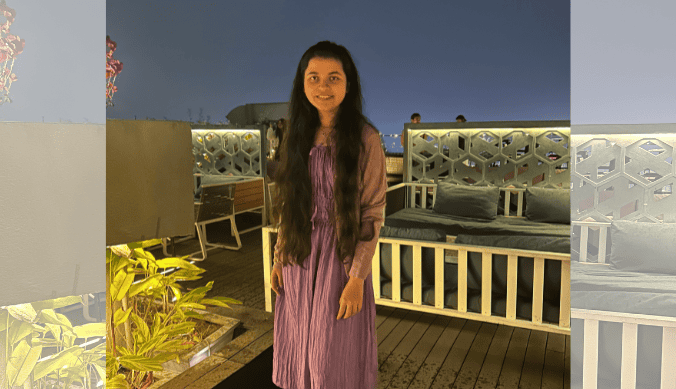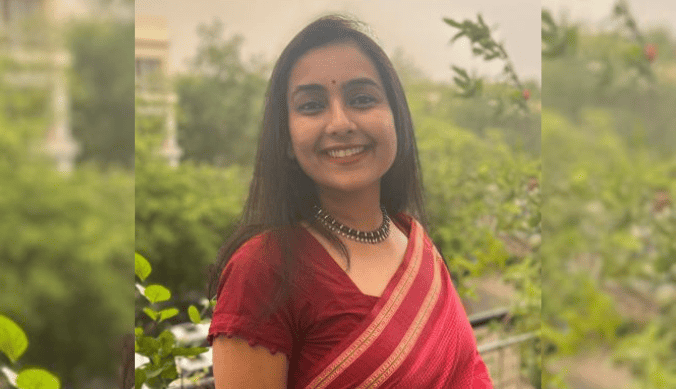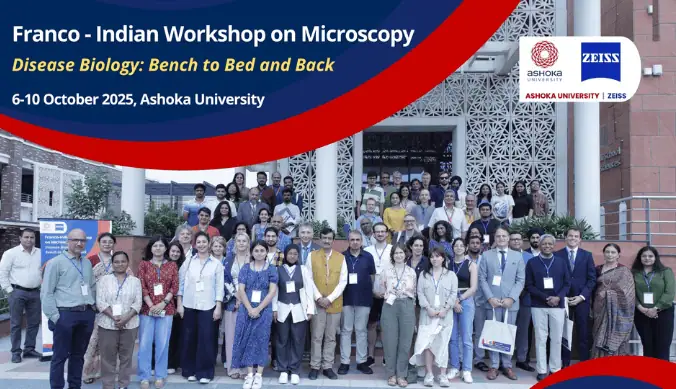“Follow Your Passion, Even If It’s Chasing Satellites in Pyjamas”: In Conversation with Nobel Laureate Sir Paul Nurse
The renowned geneticist, cell biologist, and Nobel Prize winner reflects on curiosity, cancer research, student life, and his first visit to Ashoka University.
Sir Paul Nurse – Nobel Laureate, former President of the Royal Society, and one of the world’s most respected geneticists – believes that all great science begins with wonder. From chasing Sputnik 2 across the night sky as a child to decoding the fundamental mechanisms of the cell cycle, throughout his career, Sir Paul has always had a deep love for discovery. During his visit to Ashoka University as part of the Lodha Genius Programme, he spoke candidly about his early fascination with nature and astronomy, the importance of understanding over description in modern science, and why students should follow their passions unapologetically. In this engaging conversation, he shares insights on his research, the long road from yeast to cancer studies, and the value of staying grounded, even after winning the most prestigious prize in science.
What got you interested in the world of science and discovery?
Sir Paul: I think it was a curiosity about the world around me, particularly the natural world, natural history, walking through parks and open land, butterflies, flowers, astronomy, and looking at how the stars changed at night. A particular thing that I remembered was seeing Sputnik 2, which is the second satellite that was sent up. It had a dog in it called Laika. I like dogs, and I read about it in the newspaper and then went out and watched it go over in the evening. I was enormously excited. I remember running down the street in my pyjamas trying to chase the satellite.
Your Nobel-winning discovery revolutionised the way we understand the cell cycle. How would you explain your research and the process of cell division to someone without a scientific background?
Sir Paul: I would say that we’re all made of cells, and all growth and reproduction depend on cells reproducing themselves. And the cell cycle is the process that leads to the reproduction of one cell into two. So it’s a fundamental process. What my work did was to identify the proteins that control the rate at which a cell proceeds through the events that are needed for a cell to successfully reproduce itself, and therefore, to undergo mitosis and cell division. These particular proteins act like a sort of pacemaker for going through that particular process. My lab also showed that the control we worked out from experiments working with yeast is obviously very simple, showing that exactly the same control worked in human beings. That means the same mechanism has been around for one and a half billion years. So much so that we could identify the human gene by putting it into a yeast cell and showing it worked exactly the same as the yeast gene.
What has been the significance of your research in shaping the world’s understanding of diseases like cancer?
Sir Paul: I think this work is a basic discovery, and it tells us about the growth of all living things and their reproduction, at least for eukaryotes. That is, it doesn’t apply to bacteria, but to cancer. It’s relevant to cancer in two ways – one is that the proper cell cycle control ends up with the genome being properly copied and then being segregated, pushed into the two newly divided cells. That requires high-quality cell cycle control. And defects in cell cycle control can lead to genetic damage, which can lead to cancer. So it’s critical for cancer for that purpose. The second reason why it’s relevant is, of course, that cancer is cell division out of control, and if you don’t understand the basic elements of control, you don’t even really know what you mean by out of control. While I deeply value the contributions of my colleagues, I don’t believe this work offers an immediate path to a cancer drug – it’s more about fundamental understanding than direct treatment. What I do say is, without understanding this, you can’t think sensibly about how you should treat cancer.
Is there an area of biology or medicine that currently excites you and you think will particularly transform the space of biology in the future?
Sir Paul: I think the area in the general term is understanding the complexity of life and how it is generated for the purpose of behaviour, which is what happened. And that’s an exceptionally difficult problem. Start with the sound, understanding how a cell works when it has tens of thousands of different chemical reactions going on in a purpose for how it is this way. So this means that it is for chemical problems, biochemical, molecular problems, and informational problems, about how all of this sticks together. So it’s an interesting period of how we can best combine the biochemical molecular world with very high-quality informational analysis.
What role do you think universities like Ashoka and programmes like the Lodha Genius Programme can play in shaping the future of science?
Sir Paul: I think that this programme, as far as I can fully understand it, is one that focuses on ideas in knowledge. I think that is extremely important because I get disturbed that modern science tends to focus too much on describing things rather than understanding things, and promoting thinking about understanding and the ideas that can lead to understanding is a critical part of science. I think this course is a way of encouraging that, at least in part.
What is your opinion of Ashoka as an institution?
Sir Paul: It’s my first time coming to Ashoka. I know about the emperor, of course, so I know the name and where it comes from. And it’s been a very interesting visit for me, I must admit. I’ve been to a number of teaching and research institutions in India. What strikes me here is how well put together it is, and for that matter, how enthusiastic the students seem to be. So it’s two big pluses.
Winning a Nobel Prize is obviously a humongous professional achievement – but on a personal level, what value does it hold for you?
Sir Paul: I’m not sure. Apart from being known better and therefore to some extent a bit famous, it’s of little value at all because the reality is you just get asked to do many, many other jobs. In fact, many of my colleagues who have won Nobel Prizes end up being frustrated because they are constantly being asked to do things, and in the end, they stop doing research. I’ve not done that. I keep doing the research. It is a plus in that people think, you know, you must be quite good at certain things, but also some people would like to pull you down because you have it, so sometimes people are a bit unfair to you as well. So in the end, those two things balance out.
Do you have a message for somebody who is entering their 20s in college right now? How do you think they should look at life?
Sir Paul: First of all, your life is before you, and what you do next will make your life. So, it’s very important to think about that. But my advice in thinking about it is to follow your own passions for what you’re interested in. And it has to be really inside you. You can talk to lots of people and get advice. It’ll usually be on the conservative side. If you’ve got a passion for something, pursue it. That would be my main advice.
Study at Ashoka












